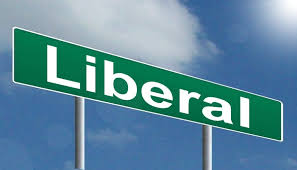As a kid with an abnormal interest in politics growing up in the 1980s, I quickly learned a couple of maxims: The Russians were our mortal enemies hellbent on destroying the American way of life and “liberal” was a dirty word.
Nobody wanted to be labeled a liberal in the Reagan era, except, perhaps, Ted Kennedy. In politics, liberalism was shorthand for government bloat and old ideas. But more generally, it was synonymous with whining and failure.
Talk about an effective branding campaign by Republicans. It’s little wonder that in the decades since, many on the left have tried to escape this negative frame by favoring the term “progressivism.”
So I have to admit to experiencing a bit of whiplash in our post-2016 election world. I still have to rub my eyes and wonder if I’m truly awake every time President Trump or Republicans defend the Russians, who may have ditched communism but are still dedicated to undermining the United States on the world stage. They demonstrated that plainly by meddling in our presidential election, something undisputed by our intelligence agencies.
It’s even more bizarre to hear some conservatives decry those of us not down with a hostile foreign power as “McCarthyites.” (It’s less surprising coming from the far left, which has always had a blind spot for Russia).
Another fascinating development is seeing many Democrats embracing liberalism, both elected officials and activists. And it’s not just defending specific policies, but arguing that liberalism is the mark of a forward-thinking society. That’s a 180 from the 80s-style Republican caricature of the ideology.
To see this transformation in action, look at Democratic primaries. Candidates are jockeying over who’s the furthest left, even for seats that favor Republicans in general elections. My inbox is jammed with releases like this: “Progressive Candidate Fayrouz Saad’s Statement on Rep. Trott’s Retirement” (Saad is a Democrat running in the 11th congressional district, which has been represented by Republicans for years). Some Bernie Sanders-style candidates are proudly declaring themselves to be socialists.
For decades, Republican primaries have been “who’s the most conservative” measuring contests. Candidates typically make the case with their platforms, arguing over who could cut taxes and ban abortion fast enough.
Incumbents love to trot out their voting records as proof of their conservative bona fides. Every year, my publication, Inside Michigan Politics, ranks the most liberal and most conservative state legislators on how they voted on dozens of key social, economic, taxation, environmental, civil rights, and public health/safety issues. In 2017, IMP used 31 votes taken in the Senate and 32 votes in the House.
Those who win, place or show on the conservative side are usually thrilled and often trumpet the honor in their campaigns. But the reaction from the “most liberal” honorees has often been mixed. Some, like state Sen. Rebekah Warren (D-Ann Arbor), a five-time “Most Liberal Senator” champ, wear it as a badge of honor. Other lawmakers, especially those in marginal seats, have been less than thrilled to be tagged with the liberal label.
But given the leftward turn in Democratic politics, I expect more legislators to celebrate their liberal voting records in the 2018 election.
So who took home the honors in IMP’s 2017 rankings?
In the House, the “Most Liberal” House member was state Rep. Yosef Rabhi (D- Ann Arbor), with an 87.5 percent liberal voting record. State Rep. Jeff Noble (R-Plymouth) is the conservative champ, voting liberal only 18.8 percent of the time.
For the Senate, state Sen. Morris Hood III (D-Detroit) was the “Most Liberal” member, posting an 88.9 percent liberal record. State Sen. Peter MacGregor (R-Rockford) was the 2017 “Most Conservative” titan with a 19.4 percent liberal voting score. The complete rankings of all 149 legislators are in the December editions of IMP.
In 2018, it’s worth watching how the furthest left candidates fare in their primaries and how many triumph in fierce general election battles. That’s a key way to assess if the Democratic Party will keep swinging left.
Susan J. Demas is Publisher and Editor of Inside Michigan Politics, a nationally acclaimed, biweekly political newsletter. Her political columns can be found at SusanJDemas.com. Follow her on Twitter here.

